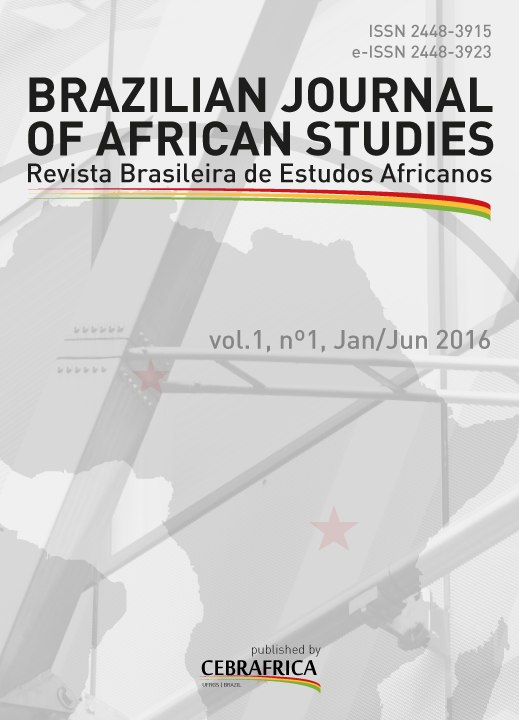THE SÉLÉKA INSURGENCY AND INSECURITY IN THE CENTRAL AFRICAN REPUBLIC, 2012 - 2014
DOI:
https://doi.org/10.22456/2448-3923.59490Keywords:
Séléka insurgency, Central African Republic (CAR), SecurityAbstract
This study focuses on the historical roots of the Séléka insurgency in the Central African Republic (CAR), from December 2012 to March 2013, that culminated in the overthrow of Francois Bozizé and the taking over of the mantle of leadership of the country by the Séléka union or coalition led by its leader, Michel Am Nondroko Djotodia and then Catherine Samba-Panza. The roots of this insurgency and instability are traced to the past and to French administration in Equatorial Africa. The study specifically examines the internal dynamics that contributed to this insurgency, as well as the consequences for internal peace and stability. The data used for analysis in this study is basically secondary and tertiary in nature. We have reinterpreted and analyzed this data in the context of the continuous insurgency, instability and disintegration that this has brought to the CAR and the Central African sub-region in general. The study concludes that the Séléka insurgency that led to the leadership change, in March 2013 and January 2014, in the CAR, is a result of a complex interplay of factors that have been and are likely to continue making the CAR a failed state, with repercussions on the people of the country and its neighbors.
Downloads
Downloads
Published
How to Cite
Issue
Section
License
The author will hold copyright over the published articles and retain publishing rights.

Brazilian Journal of African Studies is licensed under a Creative Commons Atribuição 4.0 Internacional.


